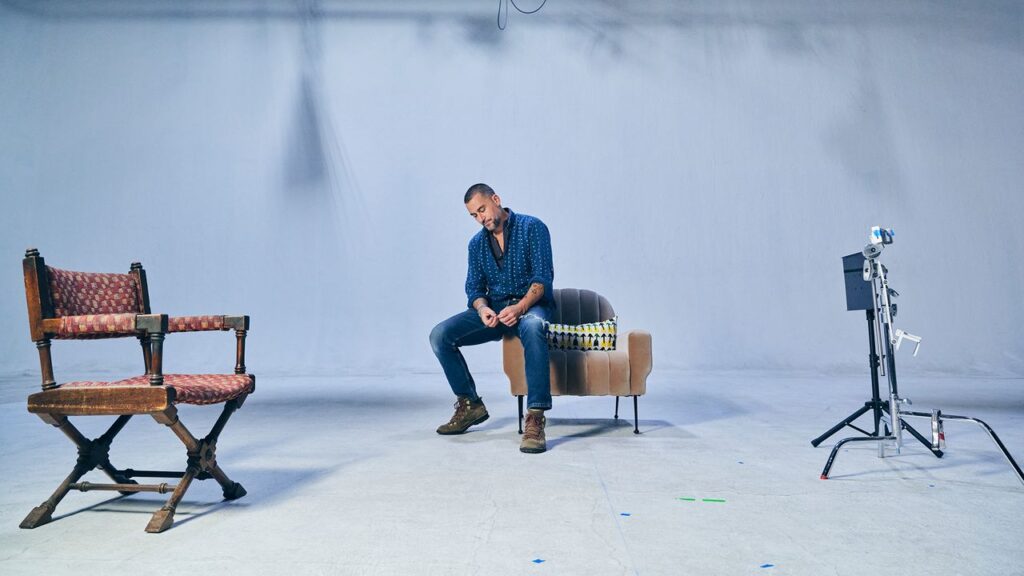The ghosts of Hollywood’s past haunt Bryn Mooser’s office building—but that’s just the way he likes it.
At one of LA’s oldest soundstages, built by legendary movie producer Mack Sennett and opened in 1916, the walls are covered with pictures of Mabel Normand, one of the greatest comedians of the silent-film era and one of the first women to have her own studio. Charlie Chaplin filmed movies in this sprawling 25,000-square-foot space; so did David Lynch and Martin Scorsese. In its later years, music videos like Michael Jackson’s “Remember the Time,” No Doubt’s “Don’t Speak,” and Robin Thicke’s “Blurred Lines” were all shot there.
Mooser, a prolific movie producer, likes to be surrounded by reminders of Hollywood’s progress—the leap to talkies, the infiltration of color, the adaptation of new storytelling devices and media. “I wanted to be in a space that was, even on a subconscious level, a reminder that our industry has gone through a lot of technological changes in the past,” he says. “All those changes kind of make sense in the long term. But when you’re in them, the conversations about them must have been really brutal.”
Though Mooser has worked here only eight months, it’s already a bustling space centered around a large room with a dozen computers, where his employees are each focused on different projects—all using generative artificial intelligence.
Asteria, Mooser’s company, calls itself an artist-led generative-AI film studio. Unlike his rivals from Silicon Valley, Mooser sells himself as a creature of Hollywood who’s trying to use AI to enhance storytelling, not replace storytellers. “Basically, AI is a dead end in Hollywood until you solve the copyright issue,” he says. So he and his team at Asteria worked with the tech start-up Moonvalley to do just that, creating a new AI model called Marey (named after French cinematography pioneer Étienne-Jules Marey) that only uses legally licensed material. In July, Marey, which is designed to be used by professional filmmakers, became available across multiple channels, including through direct subscription. Moonvalley also partnered with Adobe to integrate Marey into Firefly and Premiere Pro.
AI is the dirty word on everyone’s lips in Hollywood these days. Weeks ago, AI “actor” Tilly Norwood sent ripples of panic through the industry thanks to rumors that she might sign with a talent agency. (Spoiler: That didn’t happen.) Then Sora 2—the newest version of OpenAI’s video app, which can generate clips of characters featuring the likenesses of actual actors provided that they opt in—raised alarms for agents and talent. On social media, Robin Williams’s daughter, Zelda, begged people to stop sending her AI-generated videos of her late father. Bryan Cranston and his agents spoke out when his Breaking Bad character Walter White began popping up in videos, including one with Michael Jackson. “I was deeply concerned not just for myself, but for all performers whose work and identity can be misused in this way,” Cranston said in a statement he released along with SAG-AFTRA, OpenAI, and others. OpenAI said it had strengthened guardrails that would protect individuals’ voices and likenesses, but the fear remains palpable.

